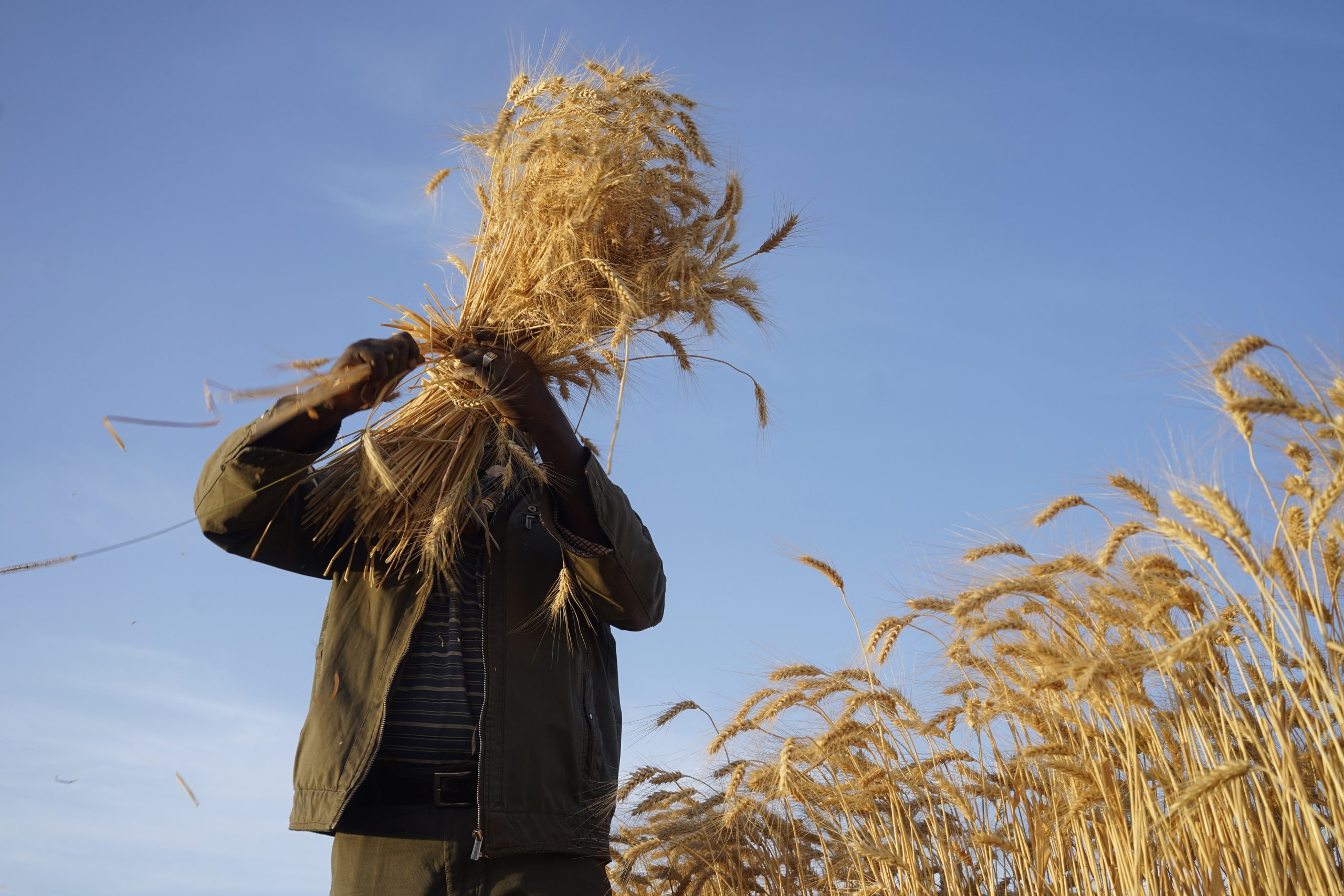Quality seed is a crucial agricultural input for enhancing crop production and productivity per unit of land. However, in many developing countries, including Bhutan, ensuring the availability, affordability, and accessibility of quality seed, especially of preferred varieties, remains a significant challenge for farmers. Maize is the second most important cereal in Bhutan after rice. However, the total area dedicated to cereal cultivation in Bhutan has been decreasing due to factors such as rural-urban migration, urban expansion, and the effects of climate change.
Between 2016 and 2021, the areas under rice and maize cultivation have contracted by 55% and 64%, respectively (FAOSTAT, 2022). This huge reduction in cereal cultivation, combined with relatively low productivity, has led Bhutan to rely on imports to bridge the gap and meet the demand for essential food crops, including maize. The Bhutanese government is committed to enhancing domestic capacity and fostering self-sufficiency in major food crops and discourages the import of seed, especially of hybrid maize.
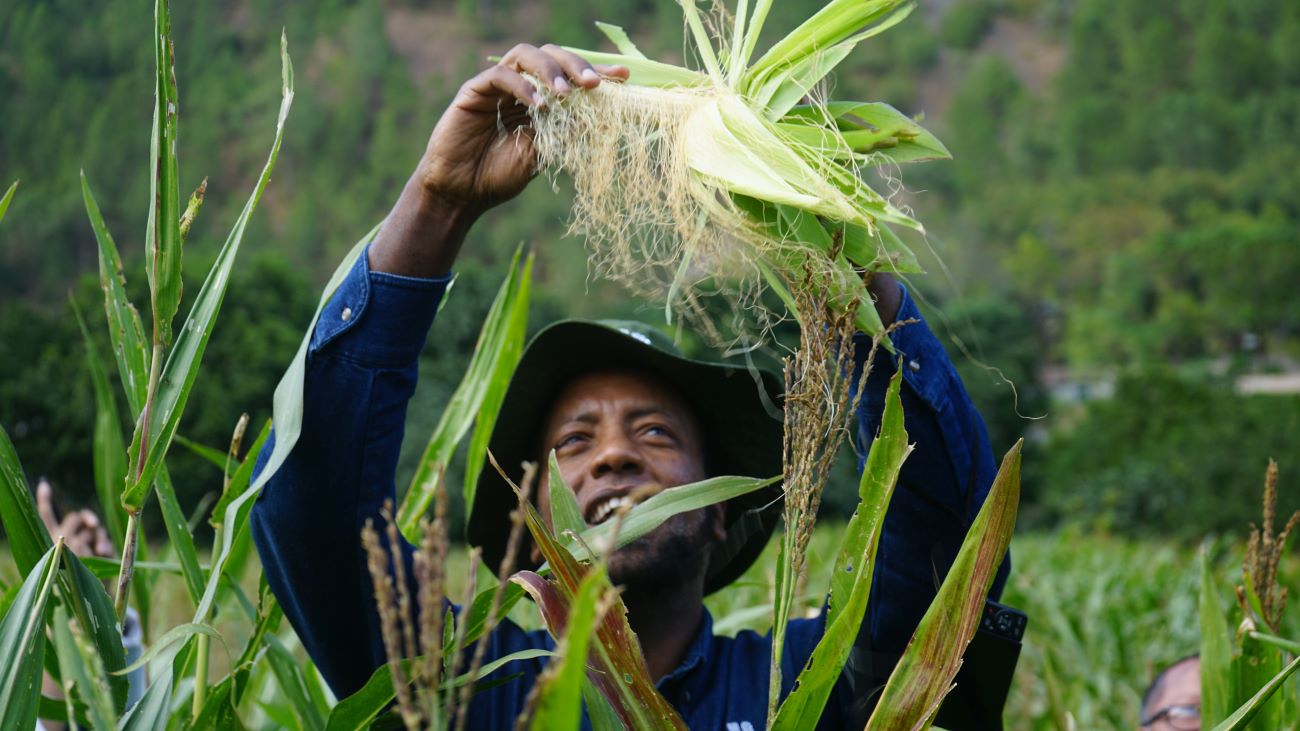
Hybrid maize seed to offset deficit
Recognizing the significance of improving maize productivity, the Agriculture Research & Development Center (ARDC) in Bhutan is working on the development and deployment of hybrid maize that has the potential to double yields compared to non-hybrid varieties. In 2020, Bhutan officially released its first hybrid maize variety, Wengkhar Hybrid Maize-1 (WHM-1), which was sourced from CIMMYT. Furthermore, several other hybrid maize varieties from CIMMYT are currently in the pipeline for release and evaluation, including those tolerant to fall armyworm (Spodoptera frugiperda), the most important maize pest in Bhutan.
Despite the testing and release of hybrid maize varieties, the production of high-quality seed—vital for realizing the benefits of hybrid maize for Bhutanese farmers—has yet to take place. The seed industry in Bhutan is primarily informal, with the majority of farmers relying on farm-saved seed of often inferior quality. The absence of a formalized seed system, coupled with a lack of the necessary skills and technical expertise across the seed value chain, presents considerable challenges in building a competitive and vibrant seed sector in Bhutan.
Training workshop emphasizes the strengthening of seed systems
To ensure a consistent supply of high-quality maize seed to Bhutanese farmers, which is essential for seed and food security and improved productivity, ARDC in collaboration with CIMMYT, under the CGIAR Seed Equal Initiative, carried out an international training workshop on quality seed production and distribution, with the main focus on hybrid maize, from 13–15 November 2023 at ARDC-Wengkhar, Mongar.
The three-day workshop involved 30 participants from diverse organizations, including the National Seed Centre, the College of Natural Resources, extensions agents from the eastern region, the Bhutan Food and Drug Authority, and agriculture research and development centers. The workshop aimed to enhance participants’ technical skills in understanding and applying the principles and practices of quality hybrid maize seed production; to promote synergistic partnerships among various seed sector stakeholders for initiating and scaling up quality hybrid maize seed production in Bhutan; and to exchange experiences and lessons to be learned from South Asian countries that can be applied to strengthening Bhutan’s seed system.
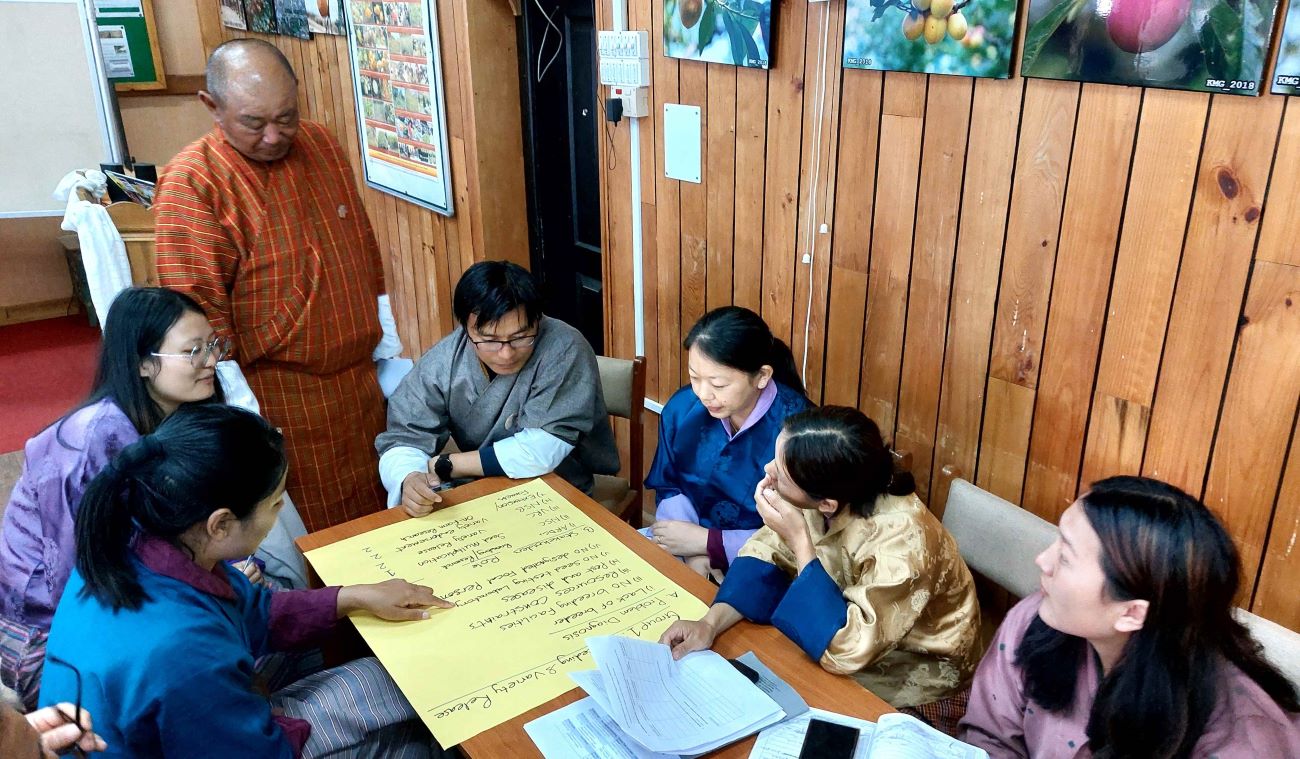
“This is the first kind of training I have received on hybrid maize seed production, and it was very relevant, action-oriented and applicable to our condition in Bhutan,” says Kinley Sithup, a researcher at ARDC-Wengkhar, Mongar, and adds that the training workshop was a useful forum for identifying key challenges and the role of stakeholders across the seed value chain, which were discussed in detail during the group work in the training.
Recently, the Bhutanese government has restricted the import of hybrid maize seed in order to promote import substitution and enhance local seed production. “In light of the unavailability of imported hybrid seeds, it’s crucial for us to intensify our efforts in scaling up local seed production,” says Dorji Wangchuk, project director of the Commercial Agriculture and Resilient Livelihood Enhancement Program (CARLEP), while addressing the participants during the opening.
The training workshop covered courses on seed system components, maize breeding concepts, hybrid seed production principles, the development of a seed roadmap on production and marketing, hybrid seed pricing and marketing approaches, seed quality control and certification, among others. A field visit along with hands-on training at ARDSC Lingmethang enriched the learning experience. In addition, experiences from other South Asian countries on hybrid seed production and marketing were shared during the training.

Team up for seed production
A significant outcome is the planned initiation of the inaugural hybrid maize seed production group in Udzorong, Trashigang, scheduled for January 2024 in collaboration with extension, the National Seed Center, and the Bhutan Food and Drug Authority. This initiative, supported by CARLEP-IFAD and CIMMYT, reflects a dedicated effort to strengthen Bhutan’s seed sector and enhance maize production for the benefit of local farmers. Fast-track variety release and seed deployment are important to Bhutanese smallholder farmers to mitigate the challenges of lower productivity. “CIMMYT is ready to continue working with partners in Bhutan,” says Program Director of the Global Maize Program at CIMMYT and the One CGIAR Plant Health Initiative lead, BM Prasanna, while delivering his messages online. Prasanna added that CIMMYT has licensed three fall armyworm-tolerant hybrids for Bhutan, and partners need to team up for the release and seed-scaling of the hybrids.
The training workshop on hybrid maize seed was the first of its kind to be held in Bhutan and was conducted under the CGIAR Seed Equal Initiative in collaboration with ARDC and CARLEP. AbduRahman Beshir, seed systems specialist at CIMMYT, delivered the main courses, with additional virtual presentations from CIMMYT staff from India and Kenya.
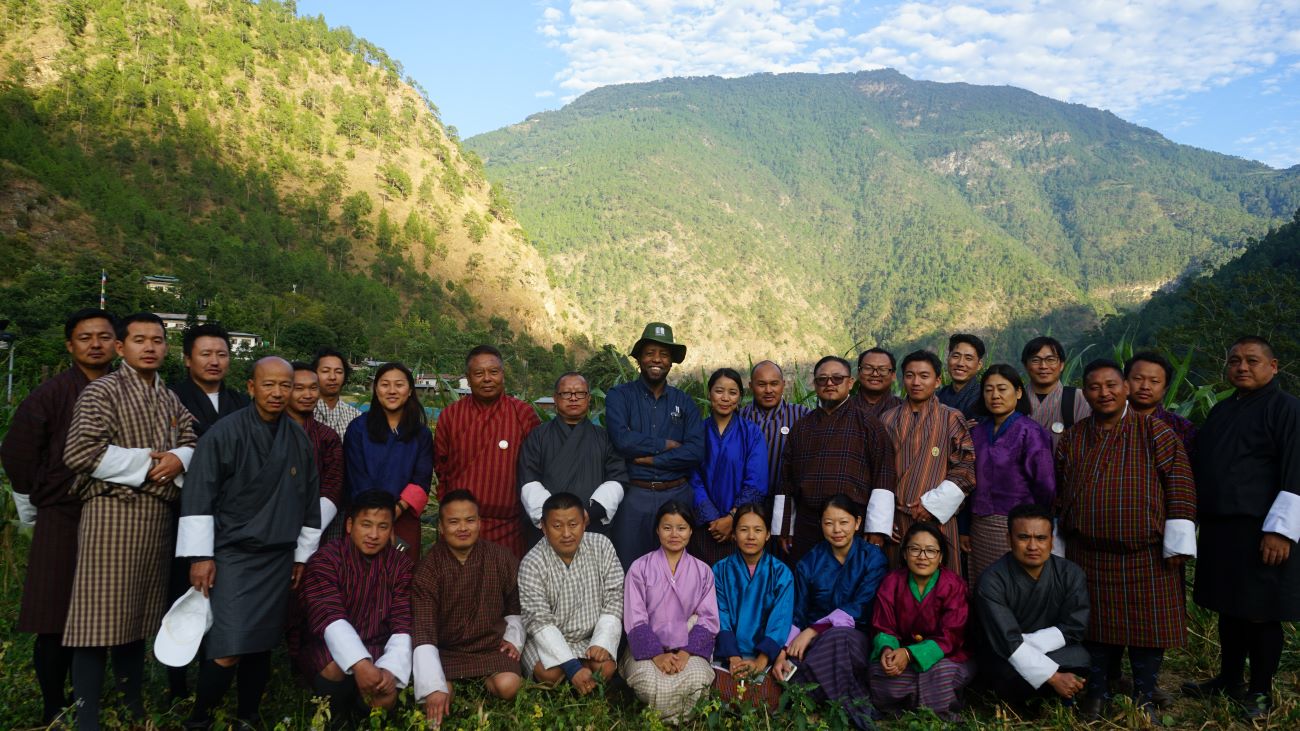
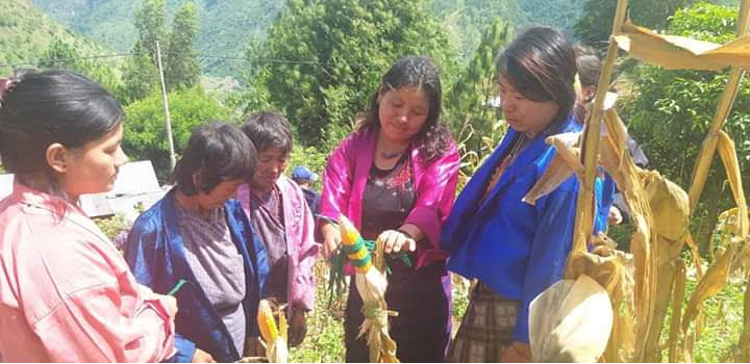
 Nutrition, health and food security
Nutrition, health and food security 
